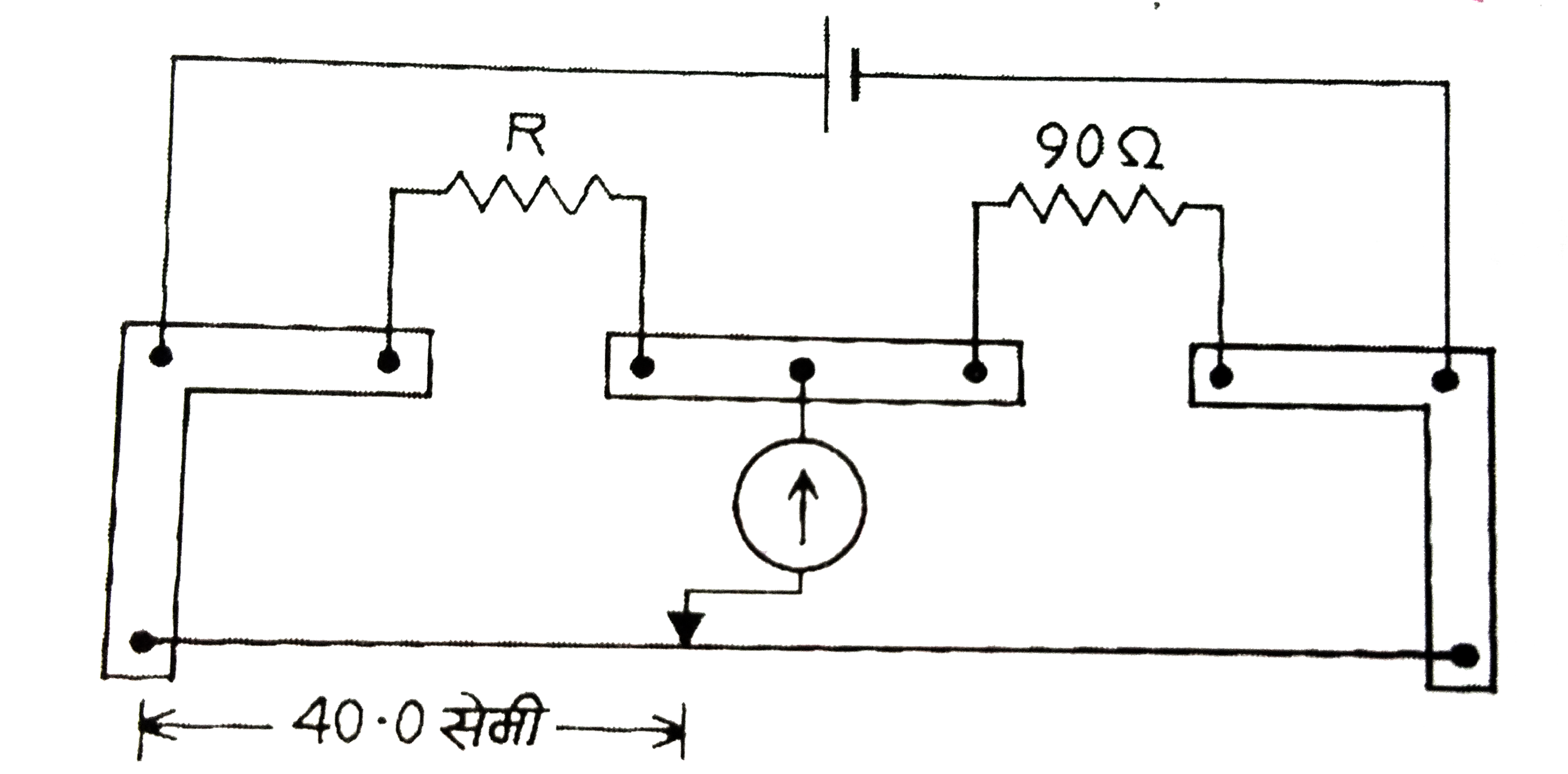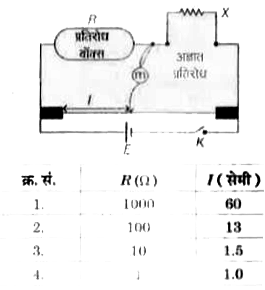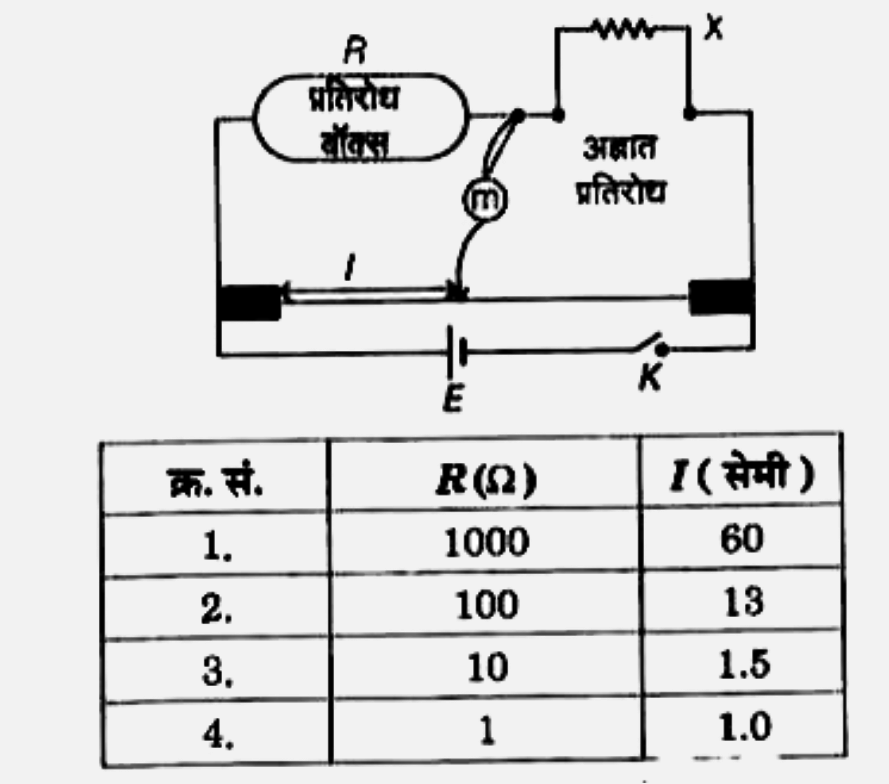A meter scale made of steel , reads accirately at 25∘C Suppose in an experiment an accuracy of 0.06 mm in 1 m is required , the range of temperature in which the experiment can be performed with this meter scale is ( Coefficient of linear expansion of steel is 11×10−6/∘C)Solution in Telugu
19∘C to 31∘C
25∘Cto32∘C
18∘C→25∘C
18∘C→32∘C
The correct Answer is:A
Given coefficient of linear expansion of steel ,
α=11×10−6/∘C
We know that ,
Δl=6×10−5m⇒l=1m
Δt=6×10−51×11×10−6
=5.45∘C
So , the range of temperature in which the experiment can be hence performed him this metre scale will be 19∘C to 31∘C
Here, option (a) is correct .
Topper's Solved these Questions
Similar Questions
Electron microscope is based on the principle of
View SolutionAssertion (A) When we bounce a ball on the ground, it comes to rest after a few bounces, losing all its energy. This is an example of violation of conservation of energy.
Reason (R) Energy can change from one form to another but the total energy is always conserved.
Which of the following is true?
View SolutionA metre scale is made of steel resds accurately at 20C. In a sensitive experiment, distance accurate up to 0.055 mm in 1 m are required. Find the tange of temperature in which the experiment con ve performed with this meter scale. Coefficient of linear expansion of steel =11×10−60C(−1).
View SolutionThe scale on a steel on a steel meter stick is calibrated at 15^@ C . What is the error in the reading of 60 cm at 27^@C ? alpha_(steel) =1.2 xx 10^-5 (.^@ C)^-1 .
View SolutionWhich of the following are not required while performing a transformation experiment ?
View Solutionएक मीटर - सेतु से 90Ω के मानक प्रतिरोध के साथ एक प्रयोग करते समय , जब जॉकी को तार के बाये सिरे से 40.0 सेमी पर दबाया जाता है , तब धारामापी पर शून्य विक्षेप प्रदर्शित होता है , जैसा चित्र में दिखाया गया है । मीटर - सेतु में प्रयुक्त पैमाने की अल्पतमांक ( least count ) 1 मिमी है । अज्ञात प्रतिरोध का मान है :

View SolutionA meter scale made of steel , reads accirately at 25∘C Suppose in an experiment an accuracy of 0.06 mm in 1 m is required , the range of temperature in which the experiment can be performed with this meter scale is ( Coefficient of linear expansion of steel is 11×10−6/∘C)
View SolutionYoung's modulus experiment is performed on a steel wire of 1 m length and 8 mm diameter. The mass required to be added in the experiment to produce 5 mm elongation of the wire is (Y_(steel) = 2 xx 10^9 Nm^(-2) . g=10m//s^2)
View Solutionएक मीटर सेतु प्रयोग के लिए परिपथ तथा संगत परीक्षण सारणी चित्र में दिए गए है।

इनमें से कौन-सा पाठ्यांक असंगत है।
View SolutionA meter scale made of steel is calibrated at 20∘C to give correct reading. Find the distance between 50 cm mark and 51 cm mark if the scale is used at 10∘C. Coefficient of linear expansion of steel is 1.1×10−5C−1
View SolutionA meter scale is made up of steel and measures correct length at 16∘C. What will be the percentage error if this scale is used (a) on a summer day when the temperature is 46∘C and (b) on a winter day when the temperature is 6∘C? Coefficient of linear expansion of steel =11×10−6C−1.
View SolutionA meter scale made up of steel read accurately at 20°c. In a sensitive experiment , distances accurate upto 0.055mm in 1m are required. Coefficient of linear expansion of steel is 11×10−6/∘C. The range of temperature in which the experiment can be performed with this meter scale is given by a ×3∘C to n×5∘C. Find n.
View Solutionएक मीटर सेतु प्रयोग के लिए परिपथ तथा संगत परीक्षण सारणी चित्र में दिए गए हैं।

इनमें से कौन-सा पाठ्यांक असंगत है?
View SolutionThe scale on a steel meter stick is calibrated at 15∘C. What is the error in the reading of 60cm at 27∘C ? αsteel=1.2×10−5(.∘C)−1.
View SolutionWhich of the following are not required while performing a transformation experiment ?
View Solution

